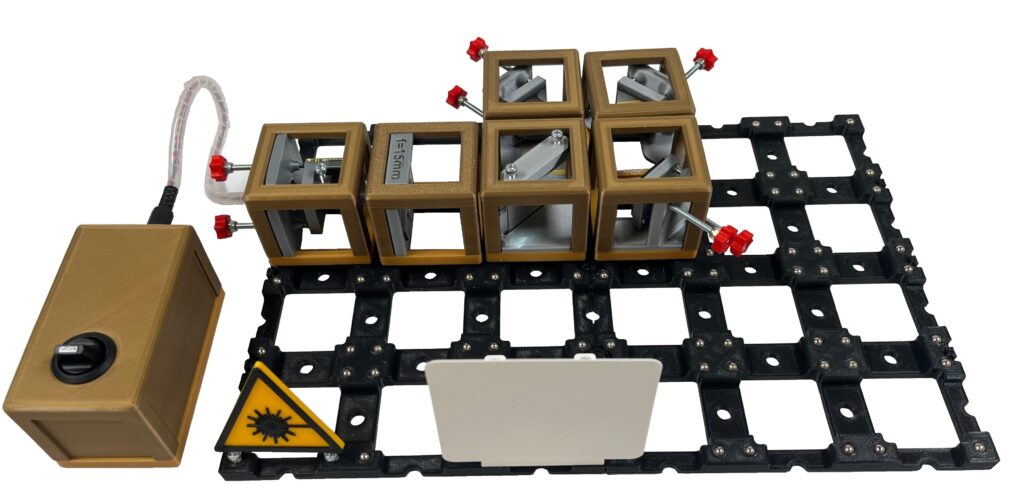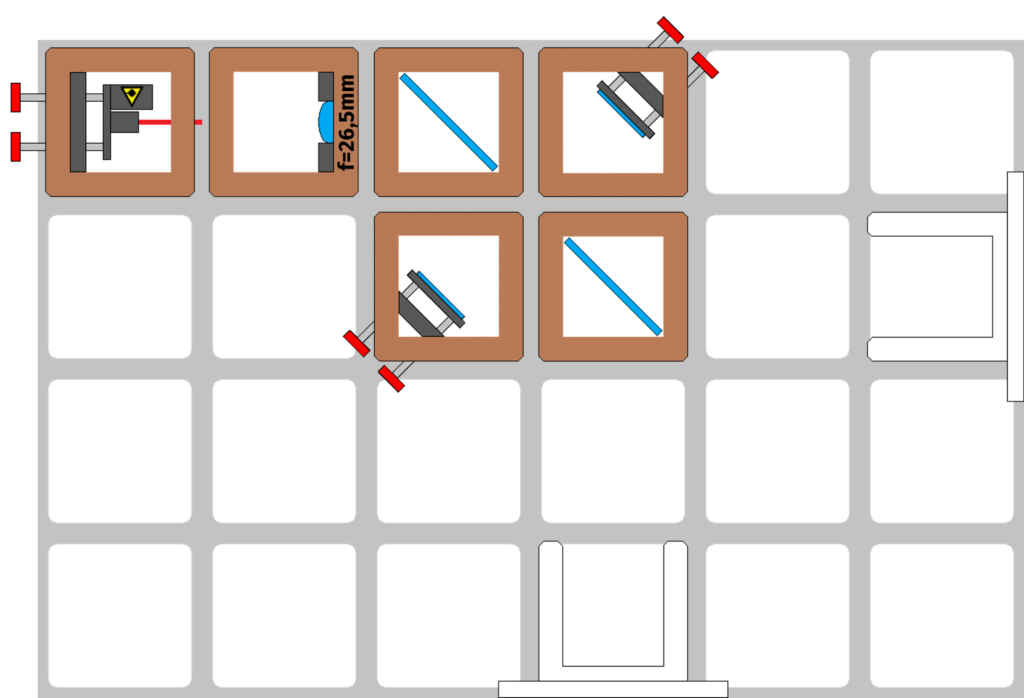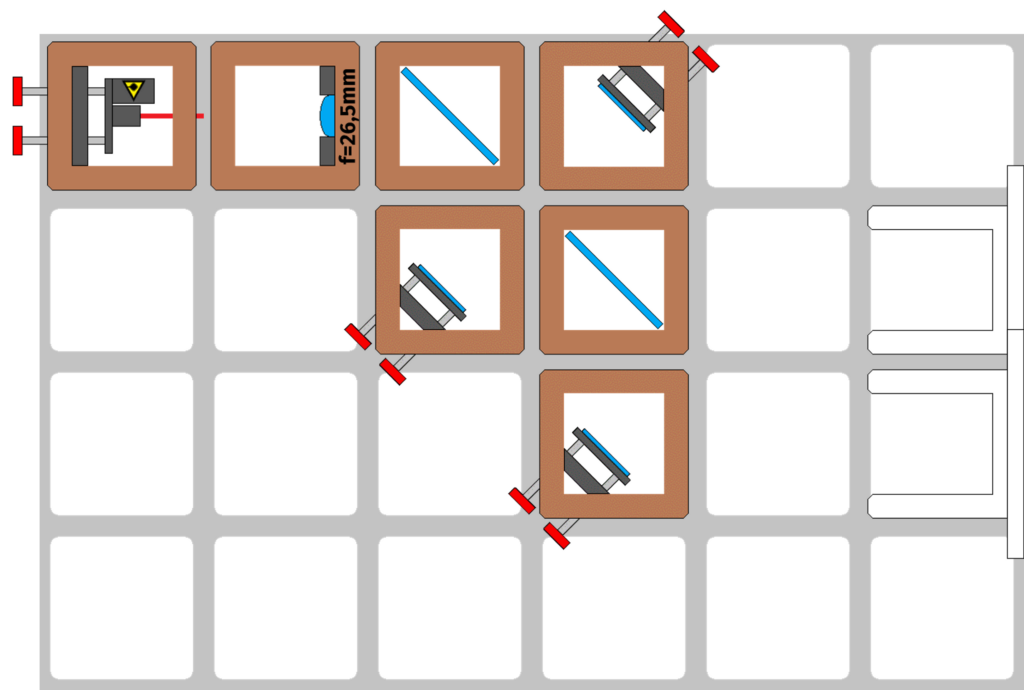
The Mach-Zehnder interferometer is a variation of the Michelson interferometer. In contrast to the Michelson interferometer, both interference patterns produced are clearly visible. The construction and adjustment are somewhat more demanding, but the interferometer offers extended experimental possibilities. By adding polarizing filters, for example, it can be used as a model for the quantum eraser.
Due to its extended application possibilities, the Mach-Zehnder interferometer is used in areas such as quantum optics, wave theory and optical signal processing. It can be used in the classroom to clearly convey concepts such as interference, coherence and quantum mechanical phenomena.
On this page you will find all the information about the structure and special features of the modular Mach-Zehnder interferometer as well as working materials for use in the classroom.
Structure
Schematic structure

Required modules:
- Laser diode (USB) or Laser diode
- Battery box
- Lens
- Beamsplitter
- 2x Mirror (45°)
- Screen
- Baseplate (min. 4×4)
- (Possible pinhole)
Here you will find the complete component and order list.
Special Features
Comment on the structure:
The Mach-Zehnder interferometer produces two interference patterns that are exactly inverse to each other. If destructive interference can be observed in the center of one pattern, constructive interference occurs in the center of the other pattern. By adding a third mirror, both patterns can be imaged side by side, making them easier to compare:

Working Materials
Coming soon
